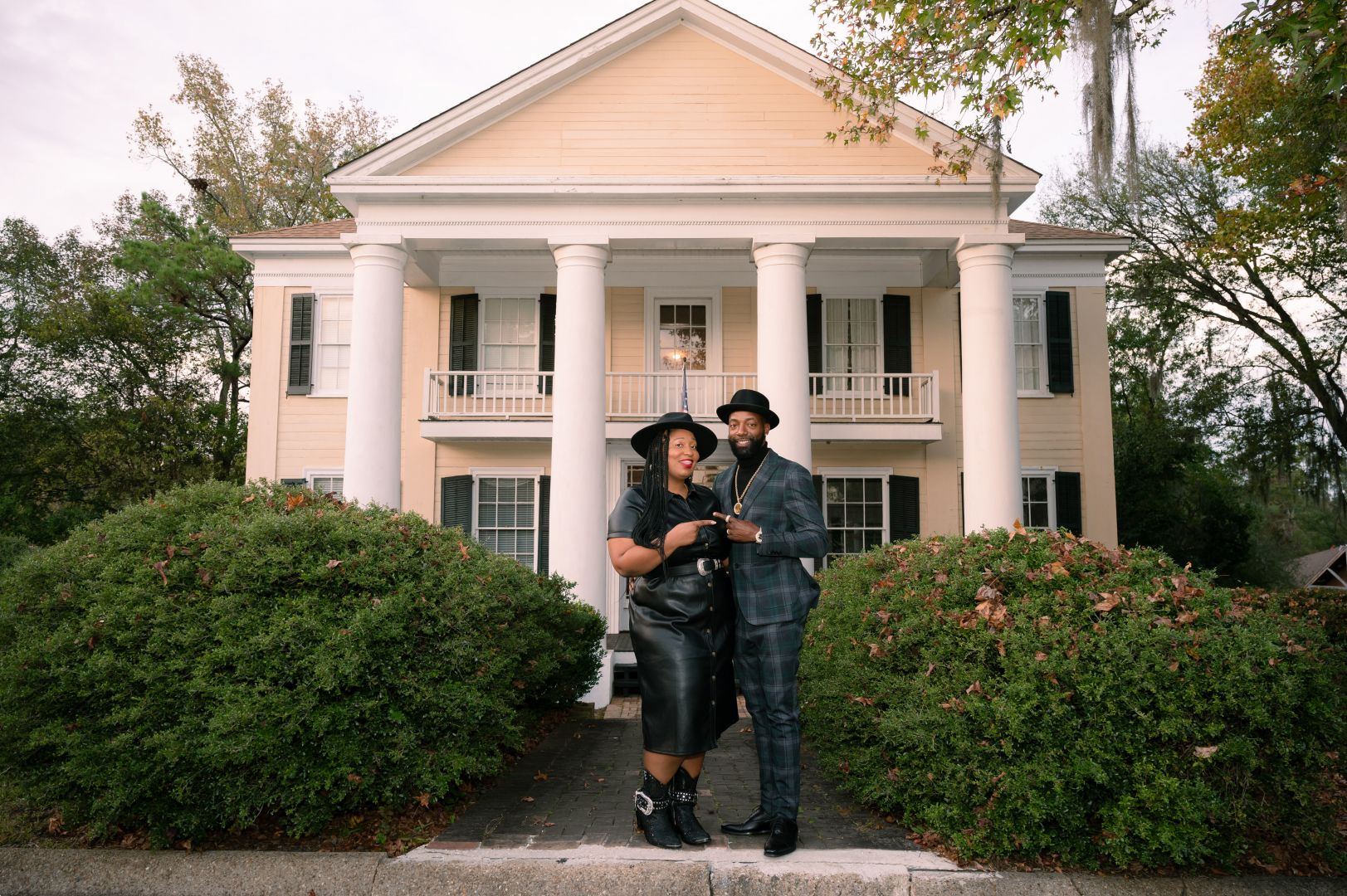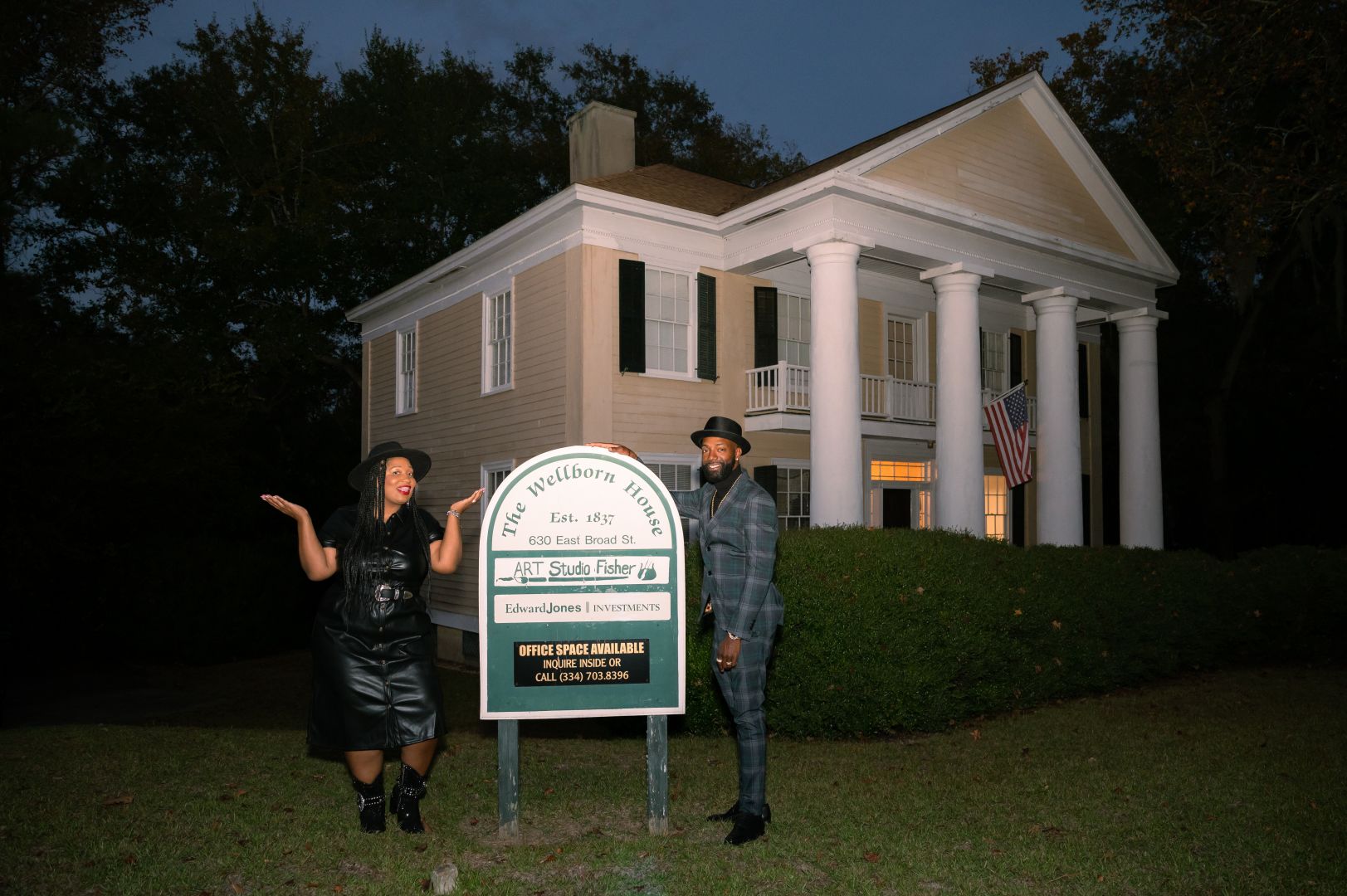Meet Eliza Jane Franklin Leggett | Critical Digital Planner, Historical Preservationist, Liberation Artivist


We had the good fortune of connecting with Eliza Jane Franklin Leggett and we’ve shared our conversation below.
Hi Eliza Jane, what do you want your legacy to be?
In the words of Toni Morrison (1995), I would like my legacy to be remembered as, “my historical life – my singular, special example that is personal, but that also represents the race”. I was born Black, lived Black, and died Black. In every opportunity that I am presented in both my personal and professional life I would like my legacy to exemplify and uplift the strength of the familial DNA and culture from which I am a product. My desire is to be remembered as someone who lived everyday with Sankofa, a Ghanaian proverb which means “it is not taboo to go back and fetch what you forgot” at the forefront of everything I accomplish. In other words, I want to present a spirit and attitude of reverence for the past, reverence for one’s forebears, reverence for one’s history, and reverence for one’s elders. When I am long gone I would like my passion for preservation, history and sharing knowledge to be reflected in the built environment through persons I will have educated as well as real estate developments and museums I will have pioneered. It is my hope that I will contribute in some manner towards the fight in liberation against the school to prison pipeline and the overall fight for autonomy of the Black body and mind. My legacy will be our legacy.
Let’s talk shop? Tell us more about your career, what can you share with our community?
Eliza Jane Franklin Leggett is an UCLA African American Studies undergraduate alumna. As a participant of the Ronald E.McNair Scholar Program, a federally funded research program for students from underrepresented groups, she completed a departmental thesis. She is a mentee of Dr. Tyrone Howard and a congressional award-winning social justice researcher. Most recently, under the advisement of Dana Cuff, Eliza Jane obtained her Master’s in Urban and Regional Planning, while crafting an independent area of concentration entitled Critical Race Studies, Digital Mapping, and Heritage Conservation. As a system impacted person and descendant of a lynching victim, she is engaged in the fight against mass incarceration and racialized gendered violence through multiple mapping projects. With less than 1 percent of the preservation field being African-American, she seeks to be a protector of Black histories and artifacts. In October of 2022, this led her to submit a research proposal which was selected to be a part of a 3 million dollar UCLA campus wide study on hate featured in Forbes where she will analyze the erasure of Black histories and spaces. Her multi-faceted approach to liberation has produced works reflecting her life as an artivist (artist and activist) through short films, podcasts, plays, academic papers and an upcoming poetry book. Specifically, one of her podcast episodes, Sankofa: Black Healing Matters, speaks to the importance of mental health awareness and community healing. She also produced a powerful Digital Storytelling project which retells the 1922 lynching story of her great-grandfather Willie Lee Jenkins in Barbour County and how an Ancestry DNA test helped her reconnect with his family after 100 years to the date of his murder. Eliza Jane promotes liberation for marginalized communities worldwide who occupy rural and urban spaces through a Black Girl Cartography (Butler,2018) lens. In partnership with Downtown Crenshaw, she and several other UCLA student colleagues crafted the Crenshaw Community Control (C3) Plan, a policy driven document to resist speculative development within the region. In her quest for equity, her driving force is to merge activism through the arts with her passion for urban planning to cultivate reimagined real and digital spatial imaginaries. Most recently her published planning mixtape on Black housing, healing and the prison nation does just that.
Along the way her journey has been difficult and filled with a myriad of life’s challenges. As a product of a small rural, southern town called Eufaula, AL, she became an orphan when her mother succumbed to a brain aneurysm when Eliza Jane was only five years old. This brain aneurysm stemmed from injuries of a domestic violence incident she witnessed. She was reared by her mother’s baby sister, until she was 14 years old and molested by a cousin’s boyfriend.
After the incident was reported she was sent to a group home by relatives. Another of her mother’s sister’s would rescue Eliza Jane from the group home and bring her to Los Angeles, California. At 21, she again fell victim to sexual violence when she was raped at gunpoint.
However, utilizing her belief in God and internal strength Eliza Jane continued to thrive beyond her circumstances. Her husband, Bennie Leggett Jr. was incarcerated in 2014, which caused a shift in her mindset to follow the educational pathway she had resisted. She attended Los Angeles Southwest College and graduated with three associate degrees after attending community college on and off for 14 years. It was at Southwest College, where she gained the tools necessary to excel and transferred to the number one public University in the world, the University of California, Los Angeles (UCLA) in 2017. This was simultaneously the year her husband was released. After reading Maya Angelou’s book, All God’s Children Need Travelling Shoes(1986), Eliza Jane traveled to Ghana in 2019. In Ghana she visited ElMina Castle and placed her feet at the Door of No Return, the last place that her and all African-American ancestors placed their feet before boarding the slave ship to become enslaved. This forever changed her life and awakened her eyes to reflect and reassess her life. She enrolled in therapy upon return and focused on healing.
Her story is riddled with tragedy and is not one that is different from most Black girls coming from socio-economically challenged backgrounds, but her success is. Eliza Jane has fought hard to overcome stereotypes and misfortune. In this next chapter of her life she has eyes set on opening a museum which preserves the heritage of overlooked Black and Indigenous folks, continuing to grow her non-profit the Black Heritage Society of Eufaula and launching her podcast Black Coffee and Cigarettes aimed towards speaking on the unspoken life issues within Black culture all while beginning her first year of her doctoral program in the Culture and Theory Department at the University of California, Irvine. To sum up her story and future Eliza Jane points to her favorite movie, The Color Purple and its lines to speak for her, “All my life I had to fight, but dear God I am here”.

Let’s say your best friend was visiting the area and you wanted to show them the best time ever. Where would you take them? Give us a little itinerary – say it was a week long trip, where would you eat, drink, visit, hang out, etc.
If my best friend was visiting for a week…we would have the time of our lives. As a Black Bruin I would take them to visit the UCLA campus and Campbell Hall to see where Alprentice “Bunchy ” Carter and John Huggins Jr. of the Black Panther Party were murdered. Downtown would be our next destination to see the Biddy Mason monument to show them one of the first prominent Black landowners in Los Angeles, who was also born enslaved. Then we would travel to the California African American Museum and Rose Garden. Next stop would be La Louisianne on Slauson and Overhill for some gumbo, chopped chicken and shrimp po boys. The following day I would take them to Leimert Park and for a drive down Crenshaw to see Nipsey Hussle’s marathon store. In the evening, we’d go to Tijuana and have some authentic Mexican tacos at Tacos De Birria Nocturnos. Another absolute must would be going to the beach in Malibu and hitting up the Santa Monica Pier on our way back on PCH. Before they left I would make sure my best friend had traditional Jamaican oxtails, white rice, with extra gravy from Blessed Tropical Cuisine in Inglewood and some Blue Velvet Cake from Sweet Red Peach around the corner. For the last stop my friend and I would circle back to Santa Monica to have a Bloody Mary with extra bacon and olives at the Blue Daisy.
Shoutout is all about shouting out others who you feel deserve additional recognition and exposure. Who would you like to shoutout?
First and foremost, I would like to shoutout my four children Makai, Bennie IV, Gregory, and Benjamin who are my greatest accomplishments in life. In addition, I acknowledge my husband, Bennie Leggett, Jr. who is my best friend, mentor and business partner. My husband is the owner of Bennie Boys Towing, the number one towing company in Los Angeles. In 2014, he was incarcerated and I was forced to figure things out. His incarceration propelled me to re-enroll in community college and because of this I have continued on my academic journey and my professional career has continued flourishing. Any ideas I have, he encourages me to explore them and has always maintained a secure financial foundation to allow me the flexibility to achieve some of these goals. Bennie has supported my vision of creating a museum space acknowledging Black and Indigenous erased and unacknowledged histories with the theme from Lynching to Liberation, by partnering to acquire a historically registered home with the Library of Congress, the Wellborn house, which is the second oldest home in Eufaula, AL built by enslaved labor in 1837.
Website: elizajanefranklin.com
Instagram: queenethebigsteppa
Linkedin: https://www.linkedin.com/in/queenefranklin/
Twitter: https://Edited Shoutouttwitter.com/Queeneisfrank
Youtube: https://www.youtube.com/@elizajanefranklin
Other: https://escholarship.org/uc/item/43g8d0b8
Image Credits
Jane Franklin Leggett (2022) Guest speaker at Juneteenth Festival in Leimert Park 5. Eliza Jane Franklin Leggett (2019) Panel Speaker in Ghana discussing racism and planning inequities in Africa 6. Eliza Jane Franklin Leggett (2019) Promoting liberation in Ghana wearing a Beyond the Bars conference shirt 7. Eliza Jane Franklin Edmondson (2017) Kennedy Center ASPIRE/LORT Region VIII Arts Leadership Representative visiting the National Endowment of the Arts 8. Eliza Jane Franklin Leggett (2018) UCLA Research poster presentation on the Diaspora and Black Girls experiences within the classroom 9. The Black Heritage Society of Eufaula (2022) Founded non-profit promoting the preservation of Black and Indigenous histories
